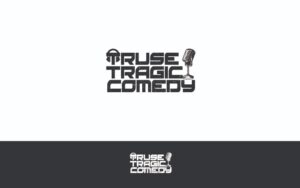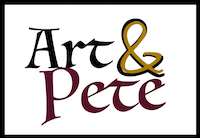
Me
By Elton John
384 pp.
Henry Holt & Co.
$30
It was with some bemusement that moviegoer/rock and rollers compared two recent biopics of flamboyant and gay ‘70s rockers Freddie Mercury and Elton John. The PG-13 rated Bohemian Rhapsody hinted at, but never really dug into its subject’s personal libertine proclivities. Not the R-rated Rocketman, which almost gleefully recounted John’s sex-drugs-sex-booze-sex lifestyle, before he ultimately achieved sobriety.
Scenes from that latter move will undoubtedly replay in readers’ minds as they devour this frank and highly entertaining autobiography, Me, which tells even more page-turning tales. And will never look at the video for “I’m Still Standing” the same way again.
A pudgy and shy kid, young Reginald Kenneth Dwight was fascinated by the piano pounding of early rock and rollers like Little Richard and Jerry Lee Lewis. But the freedom he felt in music was countered by a strict and regimented upbringing by two parents who openly disdained each other.
Dad was aloof, absent through his job, and would chastise the boy for things like not chewing his celery correctly. Mom was dramatic, controlling, always willing to make a bad situation worse, and loud. They would eventually split up, with John’s only solace coming from a loving grandmother.
Years later – as shown in the movie – his family would watch with equal parts horror and bemusement and John tried to “kill himself” in front of them at a lavish house party by jumping in the pool – only to panic when his wet and heavy robe could have fulfilled that ambition. That incident happened as Los Angeles had declared it “Elton John Week” and the singer/pianist played for nearly 110,000 fans at two shows in Dodger Stadium.
It was one of several dramatic suicide “attempts” that John always put in some ready escape clause. As when he stuck his head in the oven – but turned on the jets low, opened the kitchen window, and made sure there were plenty of people in the house. The incident inspired the song “Someone Saved My Life Tonight.” John also struggles to accept his own homosexuality — though he certainly pursues it with gusto once he comes out to a reporter for Rolling Stone. Though he admits he likes to watch others in the act as much as involve himself in it.
Some of the book’s best anecdotes come from tales of John interacting with other musicians. Fresh off the plane from England and in the wake of career-making shows at the Troubadour, he finds himself at parties where guests might include Crosby, Stills and Nash, Joni Mitchell and Bob Dylan. He and Ringo Starr take a debauched coke-fueled boat trip around Amsterdam where the drummer asks to join John’s Band (or so he was told by others – John’s hazy mind couldn’t remember a thing).

A young Elton John at the piano, dreaming of Little Richard and Jerry Lee Lewis.
The Elton John Family Collection
Danny Hutton of Three Dog Night takes John to Brian Wilson’s house early in the morning where the head Beach Boy wakes up his kids and sings the “Your Song” refrain “I hope you don’t mind, I hope you don’t mind” dozens of times to annoy its author. The Band charter a private plane to attend one of his shows.
He hangs with Freddie Mercury, and they have feminine pet names for each other. During a break while filming for the video for “I’m Still Standing” on the beach in Montserrat, John drinks eight vodka martinis and does cocaine while hanging at the hotel bar with Duran Duran, after which he strips naked, rolls around on the set, and punches his manager in the nose.
“Most of the time, no one dared say anything, because of who I was. That’s the thing about success. It gives you a license to misbehave, a license that doesn’t ever get revoked until your success dries up completely, or you man up and decide to hand it in yourself,” John writes.
Or rather, Alexis Patridis likely writes. The longtime British rock journalist is thanked along with only John’s husband and two sons in the dedication, hinting as to his role in the book’s creation. Unfortunately, he’s not given even a small line “with” or “as told to” credit on the cover.
Later, in the 1980s John is a full-on dedicated shopper and worshipper of conspicuous consumerism whose squash court is unplayable because it’s loaded with boxes and crates of furniture, art, clothes, jewelry, and records – many of which he did not remember purchasing.
But his love of cocaine ruled everything. Yet another party story has John accosting a “scruffy gardener” who was helping himself to drinks at the bar during yet another house soiree. When he discovered it was actually Bob Dylan, a horrified John babbled that he wanted to dress the equally horrified Dylan in some of his own clothes as an olive branch.

Always dressed in an understated manner: Elton performing in 1974.
Photo © Sam Emerson (courtesy of Rocket Entertainment)
As Dylan was backing away, it was George Harrison who pulled John to the said and said “I really thing you need to go steady on the old marching powder.” The book includes John’s “Farewell letter” to the White Lady he wrote as part of rehab, which saw him attend a self-estimated 1,400 meetings over a three year period of recovery groups filled with alcohol, drug, and food addicts. He would later warn George Michael repeatedly about his drug usage. Today, he is Eminem’s AA sponsor.
If something gets the short shrift in this book, it’s the reason people are reading it: Elton John’s music and its creation. But it turns out that’s probably the least compelling story anyway. When a frustrated young Elton was in a record exec’s office suffering from creative drought, he was handed an unsolicited envelope of random lyrics some aspiring writer had sent in among of stack of scores just like it.
That writer was Bernie Taupin, and the pair would go on to write a gazillion hit (and non-hit) songs together with the same process: Taupin wrote lyrics, handed them to John, who put them to music. That’s it.
To illustrate the simplicity, John writes that Taupin handed him the words for his breakthrough hit “Your Song” at breakfast. And within 15 minutes, John had completed it.
Bold-face names whiz by in the narrative in more contemporary times: Princess Diana. Gianni Versace. Ryan White. He and Tim Rice write the music for the Lion King – a smash on screen and Broadway. And Elton John has spent time collaborating with both heroes like Leon Russell and musical descendants like the Scissor Sisters and even Kanye West. He marries David Furnish and they adopt two boys.
It’s easy for the reader to get caught up in John’s enthusiasm for always looking or the next project, the next record, next event for his Elton John AIDS charity, or the next tour – though his current three-year, 300-date “Goodbye Yellow Brick Road” world jaunt is his last major one. Purportedly.
Elton John has always pursued and projected an over-the-top image of glitter, feathers, sequins, outlandish costumes, and even the occasional Donald Duck suit (which was so bulky he could not sit on the piano bench to perform). But one of rock’s biggest superstars has just as much a compelling and entertaining enough story that he (and Alexis Patridis) tell here. And the Rocket Man certainly has had an interstellar ride.
Bob Ruggiero has been writing about music, books, and entertainment for the Houston Press since 1997, with an emphasis on classic rock. He used to have an incredible and luxurious mullet in college as well. He is the author of the band biography Slippin’ Out of Darkness: The Story of WAR.






